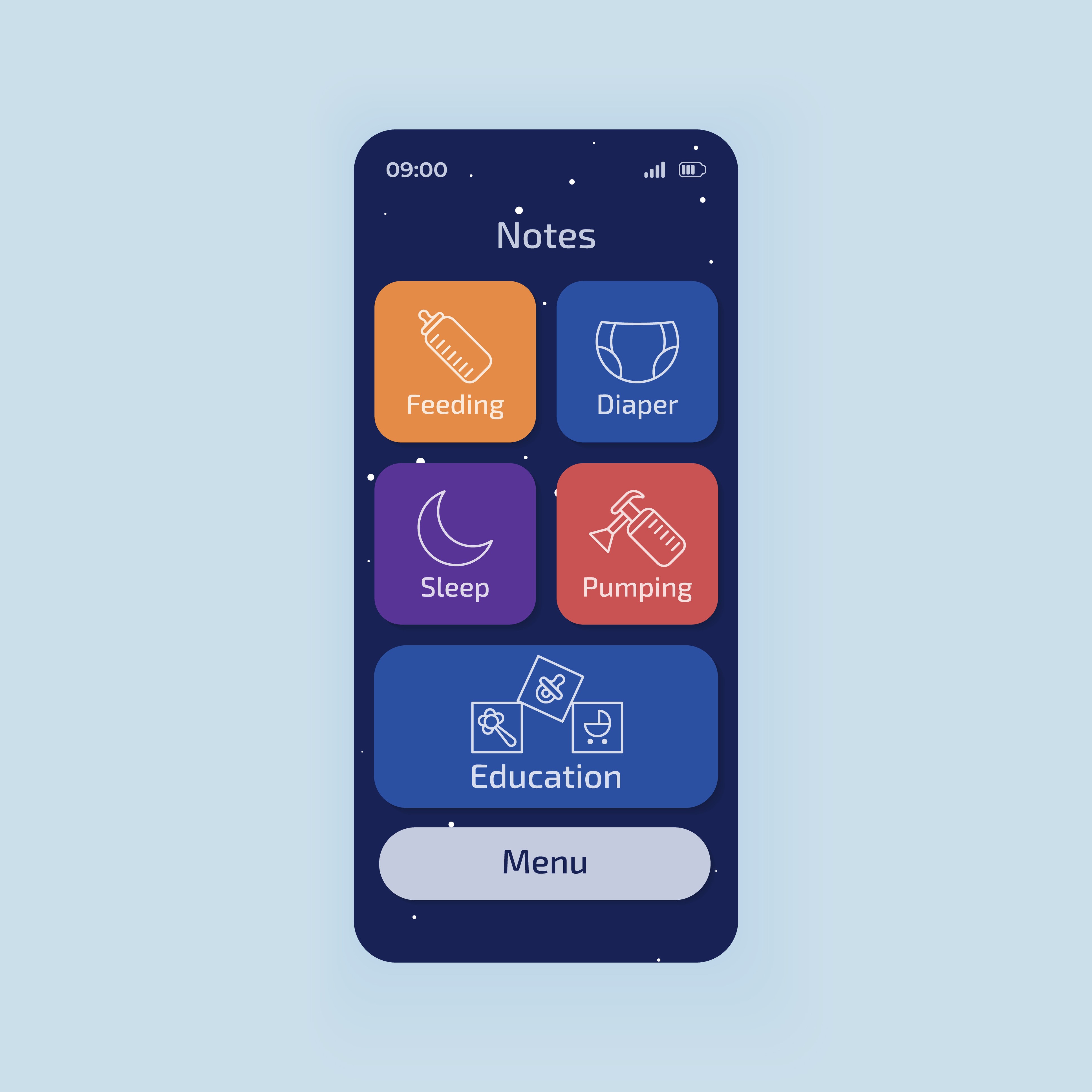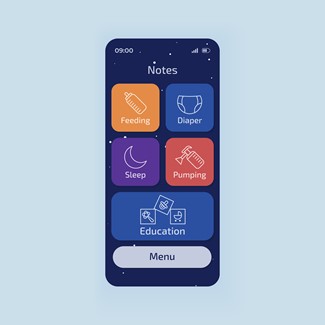How To Track Your Baby's Health And Development
As a parent, you may have wondered about the best techniques to keep track of your baby's development. When you bring your baby home from the hospital, their health and well-being become one of your top priorities.

Access to accurate information is essential when monitoring any changes in their behavior or health issues that could develop, which is why keeping track of these things is critical. You want to track their growth, milestones, and overall well-being, which will help ensure that your baby is growing as it should and receiving the care they need.
Regular checkups with a paediatrician, monitoring feeding and sleeping patterns, and being mindful of warning signs are just some ways to stay on top of your baby's health and development.
* Use An App To Track The Baby's Development
As a parent, you want to ensure your baby is on the right track regarding health and development. Luckily, there are several ways to track this information. One of the best options is to use an app that can help record and monitor milestones, such as sleeping patterns or when their first tooth comes in. There are numerous baby products in the market, such as Baby Monitor Australia, which has various features to help track your baby's health and development.
A baby tracking app can record your baby's health and well-being in valuable detail. Further, you can use the information to assess whether they are developing according to the norms set for them. With the help of an app, monitoring your child's growth and development is quicker, simpler, and more accessible than ever before.
* Keep A Growth Chart
Parents and medical professionals should monitor the health and progress of their newborns. Consequently, it pays to keep abreast of developments in the field. One way to do this is by keeping a growth chart, which records the baby's height and weight over time and compares it against a standard percentile for newborns of the same sex and age.
This information allows for preventive health initiatives if deviations from the percentile occur early when intervention can be most effective. Moreover, having such data also serves as an important milestone for future reference that can otherwise be forgotten or unintentionally overlooked as the child grows up.
* Monitor Feeding And Sleeping Patterns
Keeping track of your baby's health is vital in ensuring they reach its fullest potential. This begins with monitoring their feeding and sleep patterns, which can significantly impact growth and development. Knowing how important it is to keep an eye on their health and development, you'll want to invest in the best baby monitors Australia offers.
In addition, you should pay attention to when and how often your baby eats and how long they sleep throughout the day. Keeping an eye out for changes in these patterns can help prevent potential issues.
Moreover, you can speak to your paediatrician about age-appropriate standards to see potential deviations from the norm. Keeping track of your little one's health will be easier by staying informed and being proactive.
* Regular Checkups With A Paediatrician
Monitoring your baby's health and development is essential to being a parent. One crucial way of doing this is by scheduling regular visits to the paediatrician. Your doctor can answer any questions, recommend necessary tests and provide feedback on your infant's physical and mental growth.
Paediatric checkups can be incredibly reassuring, particularly if you are a new parent, as parenting can be a worrying time. The earlier you know about possible health issues, the better your chance of rectifying them quickly and effectively. 

* Track Vaccinations
Knowing when your baby needs immunisations and tracking when they get them is integral to any parent's responsibility. Keep a physical or digital file that includes the immunisation record to ensure your baby receives the necessary shots to keep them healthy and safe.
Don't forget about booster shots, ensuring your little one doesn't miss out on vital immunity-building vaccinations. Keep in touch with your paediatrician or primary care provider for up-to-date information about which immunisations might become available or mandated in your area.
* Use Developmental Checklists
Developmental checklists are an excellent way for parents and caregivers to keep track of their baby's milestones. They provide a comprehensive overview of expected physical, social, and behavioural milestones at different ages and stages.
These checklists efficiently assess when medical assistance or additional support is required through routine monitoring and observations made during normal daily activities. Therefore, parents can be assured that they will be able to recognise any signs that something is wrong and take appropriate measures.
* Track Milestones
For parents, one of the biggest concerns is their child's health and well-being. Tracking milestones can provide a snapshot of their development and potential problems so they can receive early intervention if needed.
You can keep tabs on your baby's progress as they grow by tracking developmental milestones such as physical movement, language, socialisation, and fine motor skills. Regular checkups with a paediatrician and filling out age-appropriate milestone forms can help you stay ahead of any possible medical conditions that could arise. As your baby grows, note any significant changes or areas that may require further attention to ensure your little one is growing up healthy.
Recap
Monitoring your child's growth and development is essential to ensure they are on track to their developmental milestones. Your child's physical, mental, linguistic, emotional, and social growth can all be tracked using a development checklist. Additionally, it's beneficial for parents to take pictures or videos of their babies to document any changes that occur during their growth.
Not every baby develops at their own pace, and there is no standard for what is considered 'normal' in its development. If you have concerns about your baby's health or development, talk with your paediatrician as soon as possible. However, having the tools and knowledge necessary to track your baby's progress will give you peace of mind.